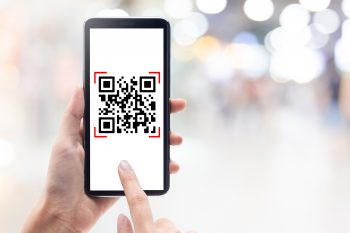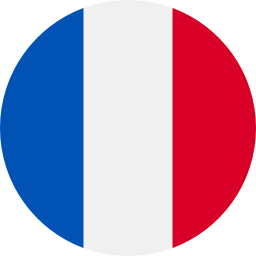
July 16, 2021 • Opinion •
On July 12, Emmanuel Macron announced the extension of the health pass to leisure areas, where a QR code will soon have to be presented. This decision is part of a dynamic of digital tracing and deprivation of freedoms, deplore Jean-Thomas Lesueur and Cyrille Dalmont.
There are dates that make an era. July 12, 2021 will be one of them. By announcing its extension to a large number of places that live in our everyday life and by affirming so brutally that it hears “focus restrictions on the unvaccinated rather than all“, Emmanuel Macron makes the health pass the necessary condition for the exercise of our freedoms to come and go, to work and to come together.
In the name of the health imperative, it puts public health and fundamental freedoms in the balance and favors without much debate the first. Adopting the posture of the leader who shows the way, he rejects any expression of doubt and nuance. He superbly ignores the wise advice of Montesquieu who invited the rulers not to touch the law “than with a trembling hand“. The counter-powers are absent subscribers, Parliament once again humiliated.
It is spectacular and, alas, significant that the State can equip itself with an instrument for digital tracing of the French population so easily. Because that is what it is. We want to address here to all who believe or claim that “it’s not so bad“, That the health pass will only last”the time of a summer“, that it is “respectful of our personal data“. By restoring some factual data and recalling the dynamics of restriction of fundamental freedoms we are engaged in France as in Europe, we hope to convince them of the seriousness of the decision of the President of the Republic.
First of all, a few technical elements on the operation of the sanitary pass. The government repeats that the “TousAntiCovid” application respects the privacy of users since it “only stores the proximity history of a mobile phone and no other data”. This presentation – which has received the approval of the Council of State on the grounds that the data is stored locally and that the use of the application is optional – is factually false. Because, if the QR code is actually stored locally on a smartphone (or on a sheet of paper), it becomes active as soon as it is scanned. It is his very vocation! A tracking and back tracking application (identification of interpersonal relationships) does not work otherwise and the information collected is then stored in remote databases.
To go further into the QR code, it should be added that it can contain up to 177×177 elements (ie 4,296 alphanumeric characters, approximately half a page of A4 text) or 7,089 decimal digits. But above all, it is possible to make it generate several html links which, once activated by a smartphone, are as many potential tracers of the activity of its user. It is therefore difficult to deny that the State has indeed equipped itself with a tool allowing it to know the comings and goings and the geographical position of citizens. It’s a fact. According to figures from the authorities, there were 17.5 million activations of the “TousAntiCovid” application as of June 2.
But perhaps more importantly, it is necessary to take the measure of the dynamics in which the sanitary pass fits. Indeed, the health crisis we are experiencing, however serious it may be, does not in itself explain the accelerated development of digital surveillance tools that we are passively witnessing. Since the 1990s, we have been experiencing an insidious but permanent erosion of public freedoms and our fundamental rights, with the constant strengthening of “security policies” of all kinds, ever more restrictive of fundamental freedoms (but rarely effective with regard to the objective displayed). The laws, ordinances, decrees against insecurity, terrorism, mass immigration, money laundering, tax fraud or more recently fake news and “hateful content” on the Internet have been counted in the tens for thirty years. . François Sureau masterfully, and sadly, denounced this continuous movement.
Recall that France lived for two years (from November 14, 2015 to November 1, 2017) under the state of emergency and then under the state of health emergency from October 17, 2020 to June 1, 2021 , making it possible to put many public freedoms into “prolonged” sleep.
This context made possible, without arousing much emotion, the adoption in February 2020 of the “GendNotes” file which allows the national gendarmerie to enter, store and process data “relating to alleged racial or ethnic origin, political, philosophical or religious opinions, trade union membership, health or sexual life or sexual orientation“. As well as the three decrees of December 2, 2020 allowing the police and gendarmerie services to collect new personal data concerning individuals considered to be dangerous for “public security”. Among these new personal data collected, something totally unthinkable in our country not long ago, we find the “Political Views“, the “philosophical or religious beliefs», «union membershipAnd some health data.
But we must go further still. This major trend is part of a unfortunately converging European context. On April 16, 2019, on a proposal from the Commission, the European Parliament adopted the Common Identity Repository which will be accessible to all customs and police services in European Union member countries and which will include biometric identity data. around 400 million citizens, Europeans and non-Europeans alike. It should also be recalled that in March 2020, the European Data Protection Board (EDPS) lifted the ban on the exchange and processing of personal information of citizens who are members of the European Union as part of the fight against Covid-19 epidemic, de facto rendering the GDPR obsolete in health matters.
The European Commission also wanted to make all the digital tracing applications put in place by the different Member States interoperable to achieve the emergence of a European digital vaccine passport. We can bet that the “European health pass” will soon be superimposed on the Common Identity Repository, thus creating a European biometric passport.
These details and these reminders make it possible to take the measure of what is at stake with the extension of the sanitary pass. The search for the balance between security and freedoms is of course a difficult art – but such is the load of the rulers. In an already dark context for fundamental freedoms, Emmanuel Macron makes a clear and significant choice for the world to come. July 12, 2021 is a dark day for those who, like Albert Camus, still “care” for freedom.
